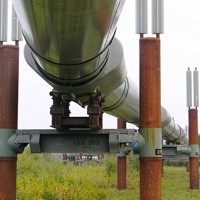Egypt’s petroleum minister announced last week that British Gas plans to invest $3 billion to $5 billion in development projects in Egypt. In an email interview, Gawdat Bahgat, a professor of national security affairs at the National Defense University’s Near East South Asia Center for Strategic Study, discussed the state of Egypt’s oil and gas industry.
WPR: Where have the events of the past two years left Egypt’s oil and gas industry?
Gawdat Bahgat: Unlike its North African neighbors Libya and Algeria, Egypt has never been a major oil producing and exporting country. It is not a member of OPEC and holds only 0.3 percent of the world’s proven reserves. The picture is better when it comes to natural gas. Egypt holds the third-largest gas reserves in Africa after Nigeria and Algeria, and in the past two decades has established itself as an important gas producer and exporter. The oil and gas sector has long been considered a major and vital economic sector, along with tourism, the Suez Canal and remittances. Accordingly, the political and security upheavals have had little impact on the energy infrastructure. Nevertheless, Egypt has historically welcomed foreign investment in its energy sector, and the political uncertainties and relative lack of domestic security over the past 18 months have made it harder for foreign companies to broaden and expand their investments in Egypt.

